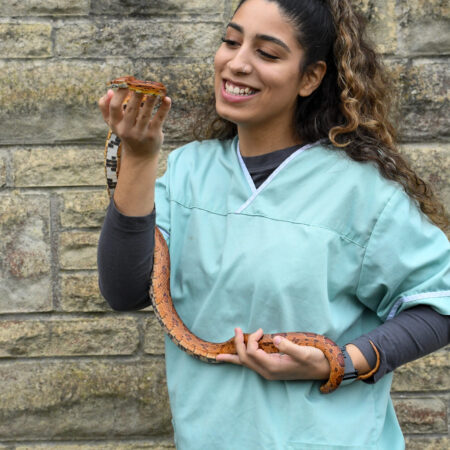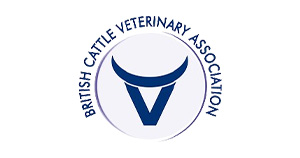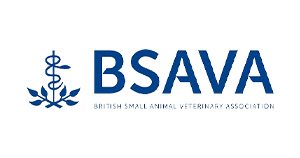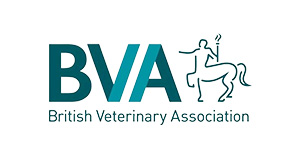Cats Protection Charity & Shepton & Wells Vets: Helping Feral & Rescue Cats
Publish on: Apr 26, 2014
Working in small animal practice, the majority of our patients are obviously much-loved pets – an integral part of their family with a loving home. However, another highly rewarding part of the job involves working with our charity partners to help them look after the stray, feral, abandoned and rescued animals. As such, we are privileged to work closely with our local branch of Cats Protection and help with patients such as Bill, Sebastian and Viola – three gorgeous kittens rescued from a local feral cat colony.
Cats Protection work at a national level campaigning on behalf of feline welfare and educating cat owners and are well-known for rehoming thousands of rescued cats every year. We meet our fair share of these cats, fostered with the local Cats Protection volunteers, as we provide health checks and any necessary treatment to ensure they are fit and well before joining their new homes.
As cats are remarkably efficient at breeding and are capable of reproducing from around 4 months, neutering programmes are an integral part of Cats Protection’s work. Limiting the number of kittens being born is the best way to reduce the overwhelming population of unwanted cats, so we are proud to participate in the regular neutering campaigns which help owners on low incomes with the cost of neutering.
As part of a rural community, our local branch also play an important role in managing our large feral cat population. Feral cats are members of the domestic cat species which are free-living and no longer tame. They are not used to human contact and are unwilling to interact with humans. They tend to live in groups, which can rapidly grow in size and become out-of-control as the cats interbreed prolifically. As colonies expand, the welfare of the cats starts to suffer, as they compete for food and resources, and parasites such as fleas and worms, and infections such as Feline Leukaemia Virus and Feline Immunodeficiency Virus, can easily spread. Feral cats then start to come into closer contact with our pet cats, causing injuries from fights and an infectious disease risk as well.
Trap, neuter, release (TNR) programmes are an effective way to control feral cat numbers. As the name suggests, volunteers leave traps at feral colony sites to capture individual cats, enabling us to neuter them before quickly releasing them back to their colony to continue their happy life away from humans. As we have no opportunity to handle these cats otherwise, we also give them a health check, test for infectious disease, if necessary, vaccinate them and treat for parasites, all while they have their short anaesthetic. Through the TNR programmes volunteers are effectively able to control the numbers of feral cats and closely monitor the colonies to ensure they are healthy and happy. As vets, we enjoy the very particular challenges of feral cat neutering and the knowledge that we are making a difference to cat health and welfare.
Adult feral cats are happiest living free but many of the kittens born within these colonies are still young enough to potentially enjoy life as a pet, so these are usually rescued and have their demeanour assessed. Those that are unlikely to adapt to domesticated life can be rehomed as outdoor or farm cats, but kittens that appear to enjoy human company go through a socialisation programme to be rehomed as pet cats.
This brings us back to our three kittens discovered within a feral cat colony at around 6 weeks old. They were undernourished and covered in fleas and one of the kittens, later named as Viola, clearly had some trauma to her face. We saw the kittens for a preliminary health check when they were very nervous. In addition to their poor condition and fleas, they all had very distended abdomens and diarrhoea which suggested they may have a severe worm burden. Viola also had several infected wounds to her face and a large, nasty-looking ulcerated mass on her eyelid. When this mass didn’t improve with antibiotics, we were worried that it might be something sinister, suggesting some underlying health issues. We took a swab from the lesion and started Viola on an alternative course of high-dose oral antibiotics, which she tolerated remarkably well given her feral start in life. Thankfully, Viola’s swab cultured only a bacteria called Pasteurella, a common bug found in cat bites, and it was sensitive to the antibiotics she was taking. And when we saw Viola back a week later her infected eyelid lesion had improved remarkably, and her other wounds had healed.
After a few weeks and a couple of worm treatments, we saw them again and were delighted to find that they were the picture of health and ready for their first vaccinations. More importantly they were blossoming into confident and friendly characters. Each time we have seen them since they have been a credit to the hard work put in by their fosterer. Bill, Sebastian and Viola were put up for rehoming and, even though they are black cats which means they are statistically less likely to be adopted, they were lucky enough to find a home together. We recently had the pleasure of seeing them again for their pre-neutering health check, and meet their lovely new owners, and it was great to see their progress as they purred all the way through the consultation! It has been an absolute honour to be involved in their journey to become happy pet cats, testament to the work of the local volunteers who devote themselves to feline welfare.
Cats Protection | feral cats | TNR programs | neutering cats | rescue kittens | Shepton & Wells Vets | cat health checks | cat vaccinations | cat adoptions |
Caring for your pet as we do our own

At Shepton and Wells Vets, we understand what your pets mean to you, and so our Pets team aim to care for each and every one of them as we would do our own.
We care about your pet
Our primary focus is keeping them fit, happy and healthy with comprehensive and effective preventative healthcare, advice and treatment.
We care about you
We aim to communicate clearly and honestly with you, and discuss different treatment options so that you can make the right informed choices for you and your pet.
We care about clinical excellence
We take pride in providing a high level of medical and surgical care, working together as a team to do the very best we can for your pet.











